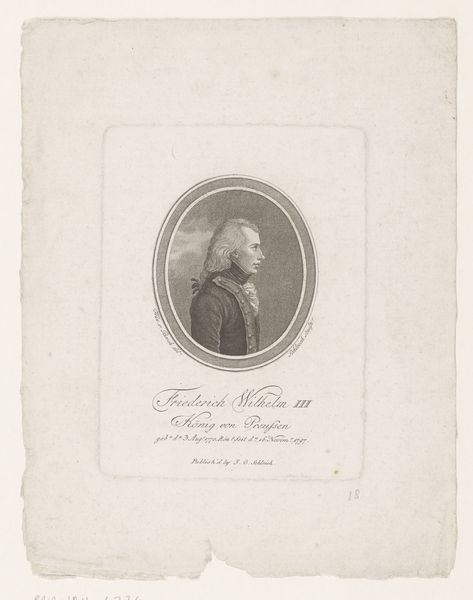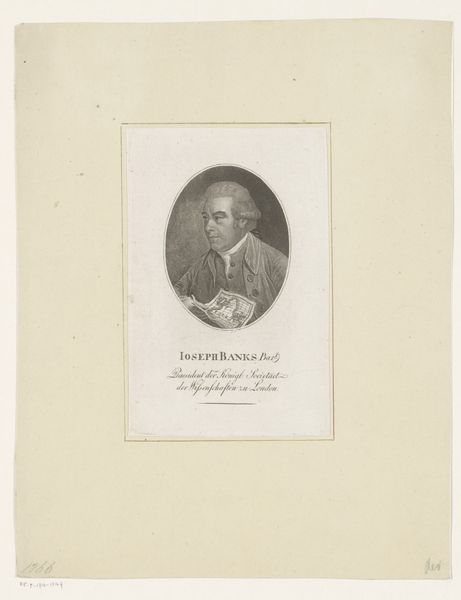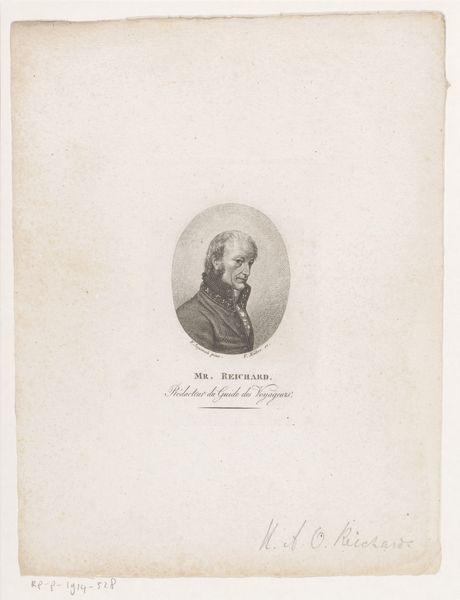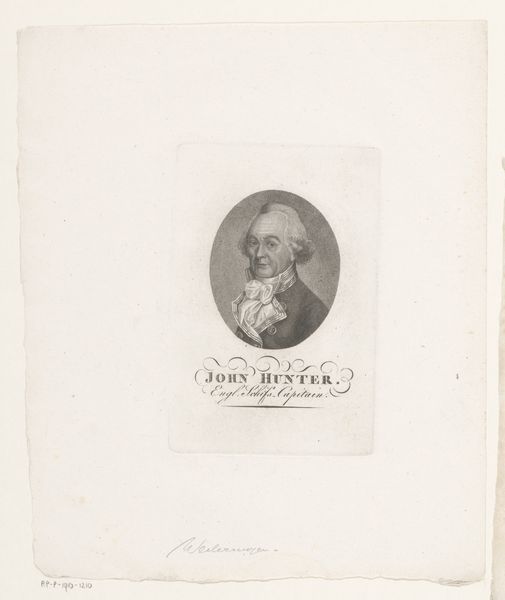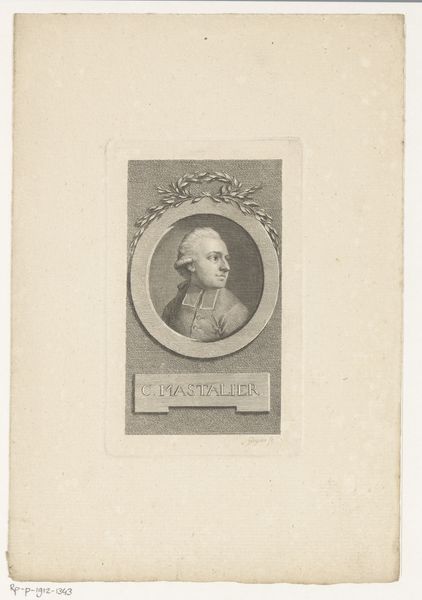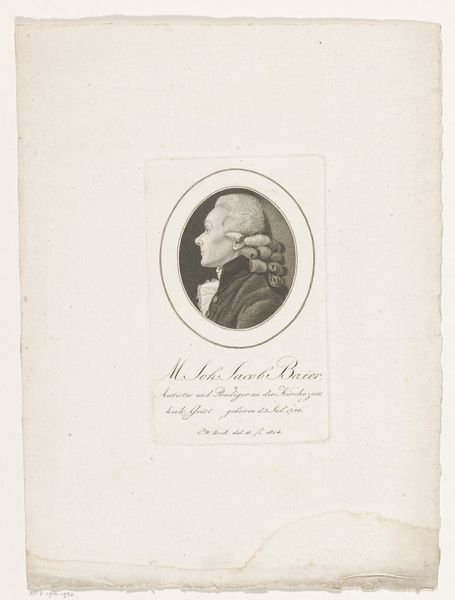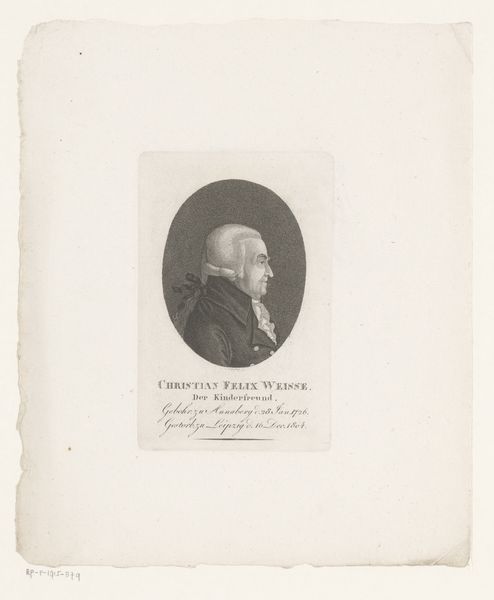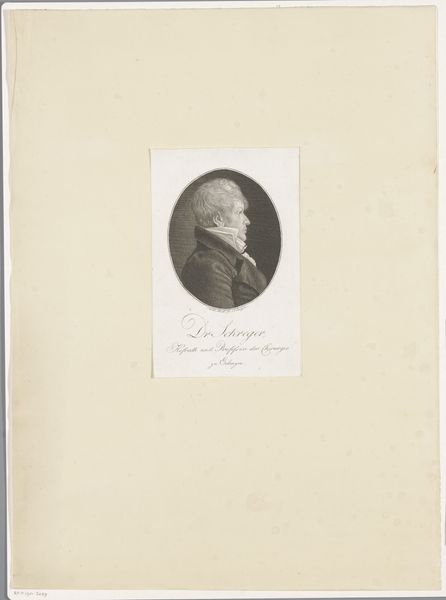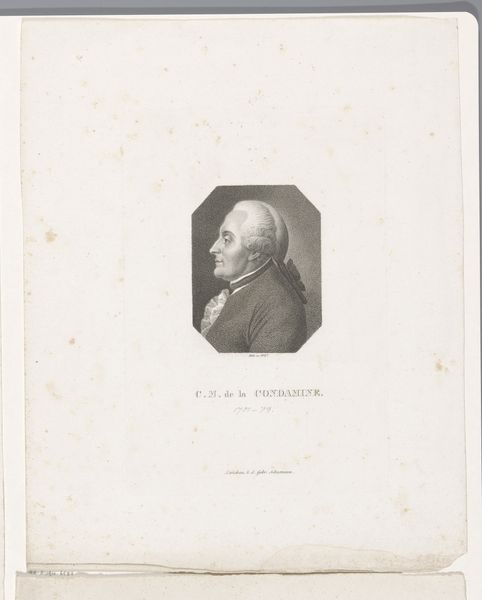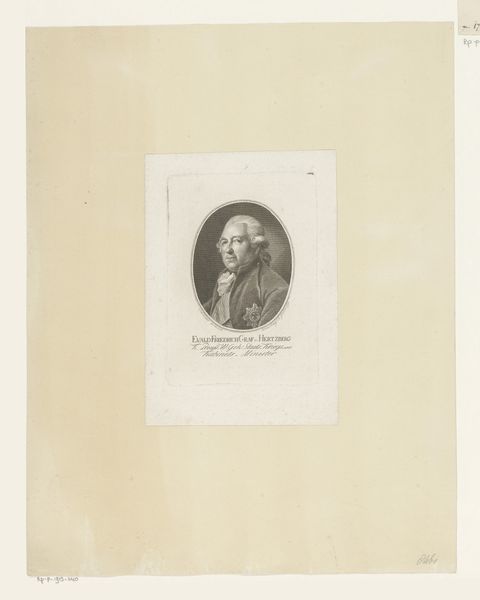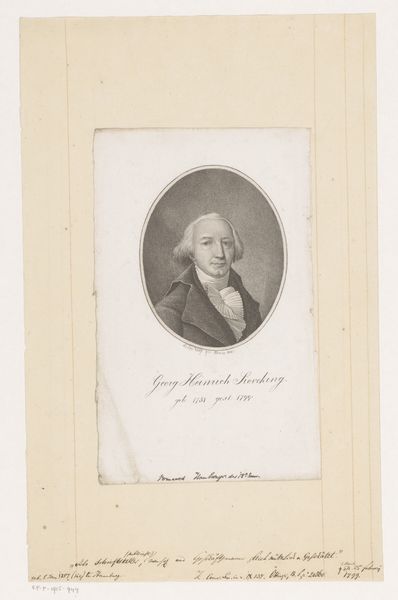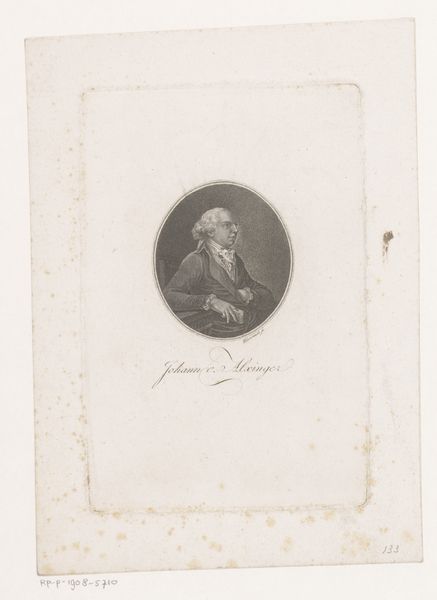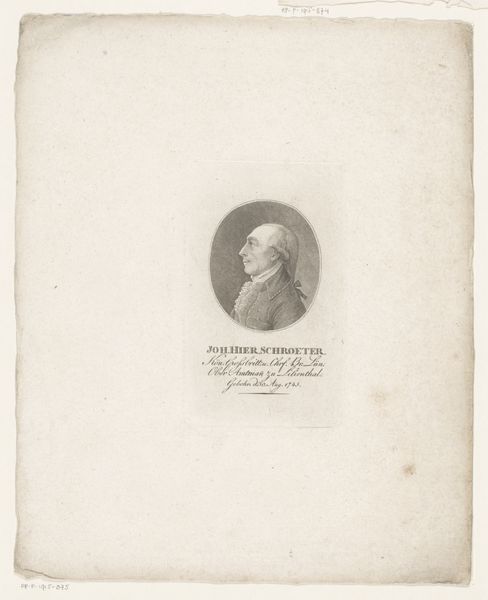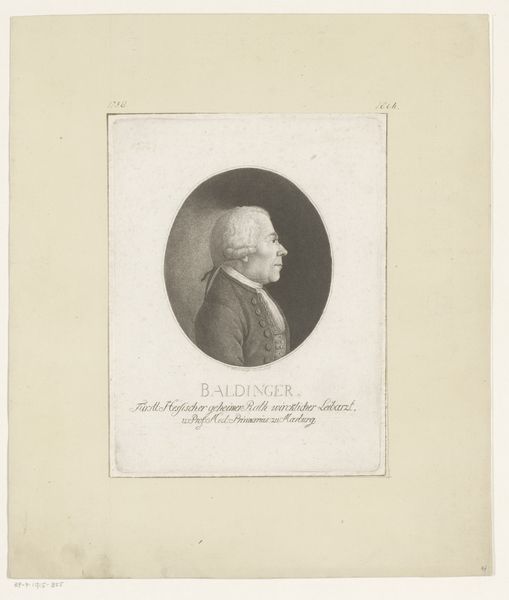
drawing, print, paper, engraving
#
portrait
#
drawing
#
neoclacissism
#
light pencil work
# print
#
pencil sketch
#
paper
#
pencil work
#
academic-art
#
engraving
Dimensions: height 201 mm, width 144 mm
Copyright: Rijks Museum: Open Domain
Editor: This is Heinrich Schwenterley's 1792 portrait of Justus Arnemann, made with engraving on paper. It’s a fairly small print, and something about the Neoclassical style feels very proper and formal, but I'm also curious about it being a portrait of a professor of medicine... What stands out to you? Curator: What resonates most is the visual language of Enlightenment ideals. Note the oval frame: it suggests a cameo, evoking classical antiquity, a period associated with reason and order. The light pencil work conveys a sense of precision and clarity, echoing the scientific spirit of the age. Do you notice how the inscription below the portrait, identifying Arnemann as a professor, further anchors him in a world of knowledge and intellect? Editor: Yes, definitely. So, the portrait isn’t just about Arnemann as an individual, but as a symbol of the Enlightenment? Curator: Precisely! Consider the symbolism embedded in his clothing. The elaborate cravat speaks to his status and the cultural values of the period, while the plain coat suggests the sitter’s intellect outweighs any emphasis on nobility and riches. Each element communicates specific values. Editor: That’s fascinating. I hadn't thought about the clothes being symbolic like that. Curator: The beauty of studying visual symbols is discovering their layers of meaning and how they connect to cultural memory. What new perspective do you glean, viewing Arnemann not as an individual but as an icon of the era's values? Editor: Now I see how carefully constructed the image is, reflecting not only the man, but also the ideals he stood for. It feels less like just a portrait and more like a carefully crafted emblem of Enlightenment thinking.
Comments
No comments
Be the first to comment and join the conversation on the ultimate creative platform.
